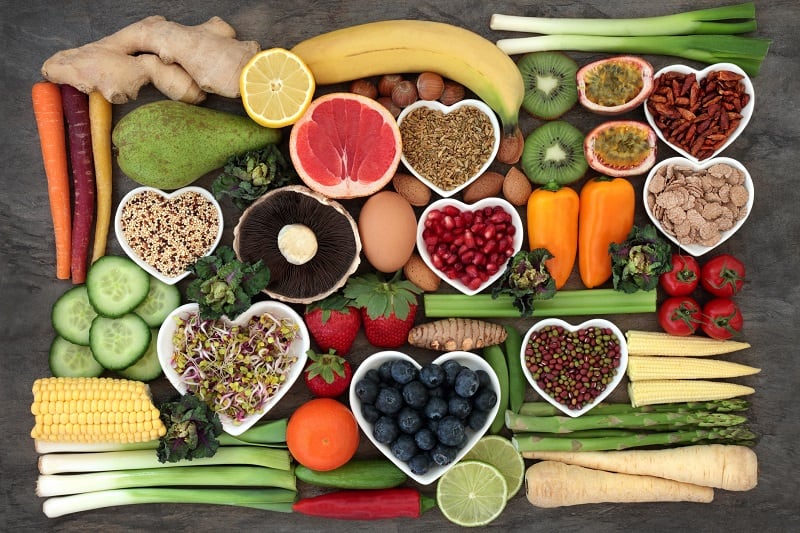A high consumption of dairy products, like milk and cheese, appears to be associated with an increased risk of prostate cancer, according to research published in the Journal of the American Osteopathic Association.
Researchers noted that prior studies have shown dairy products are the primary source of calcium in Western countries, where rates of prostate cancer are high. Conversely, there are lower rates of prostate cancer in Asian countries, where intake of dairy products is low.
The study authors found no clear association of increased risk of prostate cancer linked to other animal-based foods, including red and white meat, processed meats and fish. However, they identified a decreased risk of prostate cancer associated with plant-based diets.
"Our review highlighted a cause for concern with high consumption of dairy products," said John Shin, MD, a Mayo Clinic oncologist and lead author on this study. "The findings also support a growing body of evidence on the potential benefits of plant-based diets."
The researchers reviewed 47 studies published since 2006, comprising more than 100,000 total participants, to better understand the risks of prostate cancer associated with plant- and animal-based foods. While patterns of association emerged, Dr. Shin says more investigation is needed to understand the nature and strength of those associations.
Other factors may be behind the global prostate cancer epidemic
Prof Tom Sanders, Professor emeritus of Nutrition and Dietetics, King’s College London, took issue with the research. “The methods used in this review suffer from a number of weaknesses, notably in the statistical analysis and presentation of the results that do not justify the strong conclusions drawn regarding dairy product consumption and risk of prostate cancer,” he said.
“The World Cancer Research Fund in a far more rigorous review finds being overweight/obese or tall were the only dietary factors probably associated with risk of prostate cancer; that review only considered dairy and calcium intake as a possible cause (i.e. insufficient evidence).”
Vegans, he noted, have about a 35% lower risk of prostate cancer than meat-eaters but this may reflect the fact they are usually much lighter than meat-eaters rather than the absence of dairy foods from their diets.
Others factors, he added, could be responsible for the global rise in prostate cancer. Prostate cancer has the highest incidence and second highest mortality rate of all cancers in men, with more than 30,000 deaths annually.
“It is notable that the incidence of prostate cancer is much higher in black men of African ethnic origin, who generally consume few dairy products, compared with white men,” he said. “The prevalence of prostate cancer has increased markedly in South East and East Asia, where few dairy products are consumed, which would indicate that life-style factors, other than dairy food consumption, are responsible from the global epidemic prostate cancer.”
'We would not encourage anyone to avoid or increase intake of certain foods as a result of this study'
Dr David Montgomery, Director of Research at Prostate Cancer UK, too suggested that age, weight and ethnicity were the main risk factors associated with prostate cancer. “This paper has reviewed some of the previous studies which looked at whether certain foods have an impact on prostate cancer risk. The previous studies are of variable quality and have not consistently taken account of other factors beyond diet that could impact the results. We would not encourage anyone to avoid or increase intake of certain foods as a result of this study," he told FoodNavigator.
“What we do know is that being overweight may increase your risk of being diagnosed with aggressive or advanced prostate cancer. Eating a healthy, balanced diet and keeping physically active can help you stay a healthy weight, and so might help to lower your risk. The main risk factors that men should be mindful of include being over 50, of black ethnicity, or having a family history of the disease, and anyone who has concerns about their risk should discuss this with their GP."
Mushrooms may reduce risk of prostate cancer
A new study published in the International Journal of Cancer, meanwhile, found an inverse relationship between mushroom consumption and the development of prostate cancer among middle-aged and elderly Japanese men, suggesting that regular mushroom intake might help to prevent prostate cancer.
A total of 36,499 men, aged 40 to 79 years who participated in the Miyagi Cohort Study in 1990 and in the Ohsaki Cohort Study in 1994 were followed for around 13 years. During follow-up, 3.3% of participants developed prostate cancer. Compared with mushroom consumption of less than once per week, consumption once or twice a week was associated with an 8% lower risk of prostate cancer and consumption three or more times per week was associated with a 17% lower risk.
"Since information on mushroom species was not collected, it is difficult to know which specific mushroom(s) contributed to our findings. Also, the mechanism of the beneficial effects of mushrooms on prostate cancer remains uncertain," said lead author Shu Zhang, PhD, of the Tohoku University School of Public Health, in Japan.
Source
Effect of Plant- and Animal-Based Foods on Prostate Cancer Risk
The Journal of the American Osteopathic Association Published
Authors: John Shin, MD; Denise Millstine, MD; Barbara Ruddy, MD; Mark Wallace, MD; Heather Fields, MD





